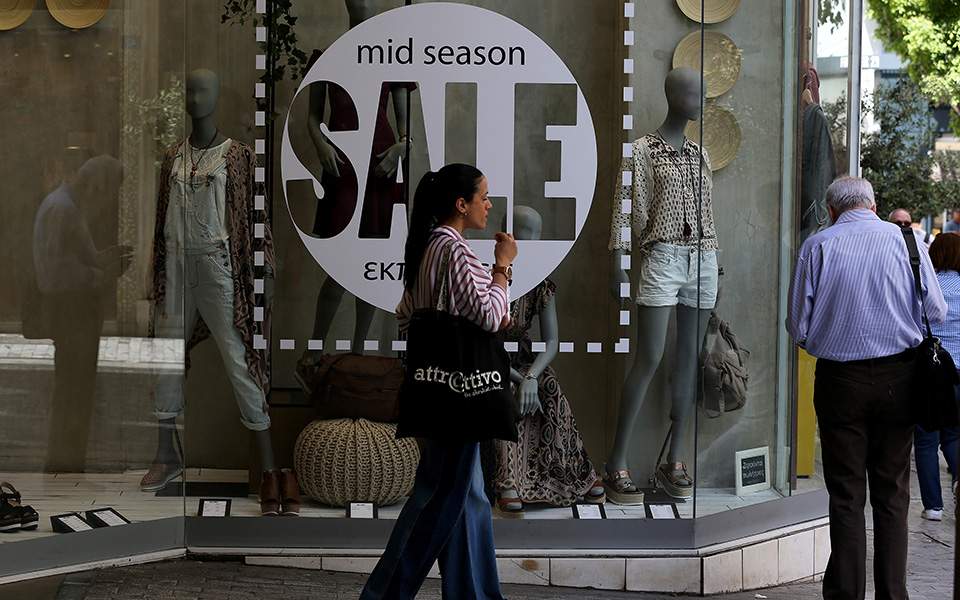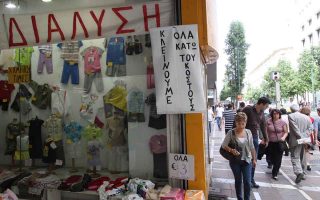Greece only EU country where retail sales sink

Retail commerce in Greece has been suffering a decline this year, according to official statistics and market experts, largely due to overtaxation, shrinking disposable incomes and political uncertainty.
On Tuesday, the Institute of the Hellenic Confederation of Commerce and Entrepreneurship (INEMY ESEE) published a survey showing that 75 percent of retailers polled were unhappy with their sales last Sunday, the first of the spring midterm sales windows.
This follows an estimated 4-6 percent decline year-on-year during the Greek Orthodox Easter period last month, according to ESEE President Vassilis Korkidis.
The index of business expectations in retail commerce has dropped to its lowest point in 18 months, with Greece being the only member-state in the European Union to record a decline in sales volume this year, according to recent Eurostat figures.
The latest Hellenic Statistical Authority (ELSTAT) data have shown that the annual decline of the retail sales volume in Greece was 2.9 percent in January and 3.3 percent in February. Eurostat data confirm that these figures make Greece the only country among the 28 EU states where an annual decline in this respect was recorded at the start of 2019.
INEMY ESEE Director Valia Aranitou explained to Xinhua that various factors have contributed to this development, including “the unstable weather and consumers' departure from the main cities for Easter.” However, she added, “there has been a general decline from last year, when retail (commerce) reached a high point. It appears it is shrinking compared to 2018.”
At the same time, the April findings of the business expectations index published by Greece's Foundation for Economic and Industrial Research (IOBE) on Monday revealed a fresh drop last month to 94 points, against 95.5 points in March and 106.5 points in April 2018.
As IOBE notes in its report, “the positive estimates about the current retail sales are significantly weakened” and “there is a decline in orders to suppliers.”
Especially in the homeware commodities category, expectations have been steadily declining over the past few months, reaching 58.2 points in April, down from 61.5 points in March and 105.5 points in April last year.
“We have witnessed a significant decline this year that is attributed to the exhaustion of the phenomenon of the weak rise in demand in previous months. This has come from the liquidation and spending of assets, such as bank deposits and cash saved under mattresses,” explained Antonis Zairis, vice president of the Hellenic Retail Business Association (SELPE).
“This has started to become evident this year and is due to the heavy taxation of households as well as to problems in the growth of the Greek economy's main drivers, such as tourism, exports and investments,” Zairis, who is also an associate professor at the Neapolis University in Cyprus, told Xinhua.
Greece emerged from its third bailout program last August and posted an annual growth rate of 1.9 percent in 2018. [Xinhua]





